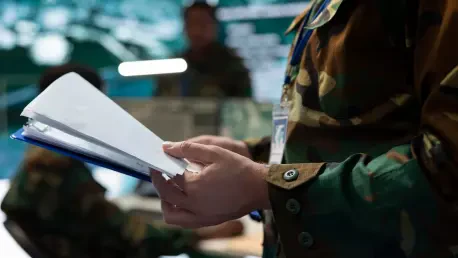The increased involvement of Department of Defense (DOD) civilians along the U.S. border has prompted a reevaluation of the traditional roles played by military personnel in immigration enforcement. This strategic shift comes amid rising concerns over immigration challenges and security dynamics, leading to broader implications for national defense policies.
Understanding the Growing Military Influence in Immigration
In recent developments, the presence of military personnel at the U.S. border has sparked discussions about the evolving role of the armed forces in immigration enforcement. The deployment of military resources to bolster border security has seen a notable uptick, closely tied to wider immigration policy and national security strategies. These developments challenge conventional practices and call for a reassessment of national defense roles in managing immigration concerns.
A New Defense Strategy Contextualized
During the prior administration, significant policy shifts aimed at tightening border security were initiated, notably through increased military support. These changes reflect the administration’s focus on homeland security and addressing broader immigration challenges. More recent directives underscore a persistent trend toward leveraging military resources in support of the Department of Homeland Security (DHS) for enhanced operational effectiveness at the southern borders.
Detailed Scope of DOD Civilian Roles
Expanding the scope of border operations, DOD civilians have been authorized to take on specific roles. This initiative introduces a level of complexity regarding reimbursement policies and execution of duties that parallel regular Pentagon assignments. An examination of relevant policy highlights potential financial ambiguity that needs addressing as its implications on operational efficiency and Pentagon workload become clearer through case studies.
Perspectives from Defense Experts
Insights from leading figures reveal varied opinions on this strategic shift. Notably, Chief Pentagon spokesman Sean Parnell emphasized how integrating qualified DOD civilians aligns with accelerated national security aims. Meanwhile, defense analysts express concerns about the strategic implications this shift might have on traditional military roles and objectives. Anecdotal evidence from involved civilians points to evolving challenges and opportunities within these expanded roles, adding a personal dimension to the broader strategic dialogue.
Assessing Strategic Implications and Future Paths
Continued assessment of DOD civilian participation in immigration enforcement remains crucial, ensuring alignment with core national security goals. An effective balance between defense sector roles and operational priorities of the Pentagon will be pivotal in shaping future policy. Long-term implications for Pentagon-DHS interactions should be thoroughly evaluated to identify potential adjustments and strategic solutions as proactive measures for sustaining this integrated approach.
The strategic integration of DOD civilians at the border highlights the shifting landscape of military involvement in non-traditional arenas, signaling an urgent need for coherent policy reevaluation. As defense and border security dynamics continue to evolve, staying ahead with strategic solutions will ensure a robust approach to the immigration challenge.









